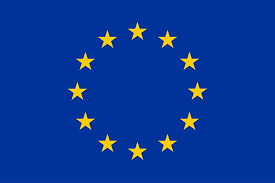Why digital data from our eyes will have significant implications for better or for worse
Professor at the IT University, Dan Witzner Hansen, has spent the most of his career researching how we collect and utilize data from our eyes. Now, he is a partner in the EU project, Eyes4ICU, which he hopes will be the fundation of the next generation of researchers in the field.
Dan Witzner HansenResearchComputer Science DepartmentCollaborationswearables
Written 3 May, 2024 09:10 by Jari Kickbusch
In 2003, Dan Witzner Hansen defended his PhD thesis as one of the first in the history of the IT University. His thesis focused on how to produce cheaper and better eye trackers, i.e., technologies that can read the eyes and their movements in various ways. Back then - 21 years ago - eye trackers were a niche and the interest in the information we can gather from our eyes was not widely popular.
Today, Dan Witzner Hansen is still at the IT University, now a professor, looking back on two decades where his research field has grown significantly and become increasingly relevant and technologies that can read and utilize information from our eyes has become quite common. For example, XR glasses and headsets can provide us with entirely new experiences, and in the medical field, it is possible to detect diseases such as dementia and concussions using technologies that can read our eyes. However, there is still untapped potential and significant challenges in these technologies that we still have to investigate, Dan Witzner Hansen explains.
Eyes4ICU
Dan Witzner Hansen is a partner in the project, Eyes4ICU, funded by the EU's Horizon Europe program. The project's goal is to educate researchers at European universities, including the IT University. The research group is multidisciplinary and includes both the natural sciences and the humanities. The IT University's contribution to the project will be the training a of a PhD student who will conduct research on the protection of data from our eyes.
"The technological development is advancing rapidly, and we must be careful not to overlook the ethical challenges that arise when companies and states gain access to our biometric data. While data from our eyes offers us a range of new possibilities, it is essential to consider the consequences of entities accessing information about our eyes. We need more knowledge about what these technologies actually mean for the protection of our privacy, and that will be ITU's contribution to the project," says Dan Witzner Hansen.
Next Generation of Researchers
The objective of the project is to educate a total of 12 PhD researchers by 2026, who will be part of a European Marie Skłodowska-Curie Doctoral Network. Dan Witzner is enthusiastic about the prospect of a new research group in the field and expects that each of them will be valuable in the years to come.
"When you combine data from our eyes with all the other data we already leave in our digital lives, detailed profiles of each individual can be created. For instance, eye data revealing what captures users' attention can provide strong indications of everything from political views to sexual preferences. This implies that these technologies also have a frightening potential as surveillance tools. Therefore, it is crucial that we educate the next generation of researchers now so they can help ensure that we can use these technologies for positive purposes in future," concludes Dan Witzner Hansen.
For further information:
Learn more about project on Eyes4ICU’s webpage

This project has received funding from the European Union’s Horizon Europe research and innovation programme under the Marie Skłodowska-Curie grant agreement No 101072410.